No products in the cart.
Return To Shop
Log in / Sign in
Login
Register
Andhar Bil
In 1947, and then in 1971, in the South Asian subcontinent, entire communities of people crossed newly-created borders to find new homes as partitions divided and reshaped countries. Kalyani Thakur’s beautiful and evocative novel, tells the story of her people, Dalits belonging to the Matua sect, who settled around a local water body – Andhar Bil – in the new nation. Reminiscent of the beloved bil they left behind at home, the refugees begin, slowly and painfully, to rebuild their lives.
As children play in and around the bil – the central ‘character’ in the novel – people seek out varieties of fish and cook them in ways that recall the flavours of home, festivals and boat races take place, jute is farmed and sold, floods arrive and push people to high ground, marriages happen and property disputes unfold. The still waters of the bil absorb and hold all these stories and the boroi tree stands in the centre of the bil, a silent witness to everything.
Through this episodic, almost plotless novel is woven the story of Kamalini, a young girl who will, one day, journey to the city, leaving her beloved Andhar Bil behind, just as her parents’ generation left their villages and their beloved bil in what became another country.
KALYANI THAKUR CHARAL was born in Bagula in the district of Nadia, West Bengal. She began her professional life in the late eighties in the Indian Railways. Later, she went on to start a wall magazine ‘Neer’ that subsequently turned into a regular magazine, Neer Ritupatra, now an important forum for Dalit women writers. Kalyani is a life member of the Bangla Dalit Sahitya Sanstha and is on the editorial board of the Sanstha’s magazine, Chaturtha Dunia. She is also a member of Paschim Banga Dalit Sahitya Academy, founded by the Government of West Bengal. Among her many published works are several poetry collections, Dhorlei Juddha Sunischit (2003, 2006), Je Meye Andhar Gone (2008), Chandalinir Kobita (2011), Chandalini Bhone (2015). Fire Elo Ulanga Hoye (2016) is her collection of short stories; collections of articles are Chandalinir Bibriti 1 (2012) and Chandalinir Bibriti 2 included in Kalyani Rachana Samagra Part 1 (2021). Her autobiography is titled Ami Keno Charal Likhi (2016). Her novel, Andhar Bil O Kichhu Manush was published in 2019. She has published many poems, short stories and articles under the pseudonyms ‘Chandalini’ and ‘Bonachandali’. The list of her edited books includes Krishna Chandra Thakur (Kesto Sadhu): Smriti Sambhar (1999), Lokosanskritik Prabandha Sankalan (2008), Sudhangsu Dulal Adhikary Rachana Samagra (2008), Matua Dharma Prosonge (2010), Dalit Lekhika — Women’s Writings from Bengal (2020), Nirbachito Dalit Narir Rachana (2022). Kalyani has also presented her work at various international forums.
ASIT BISWAS is an associate professor of English in West Bengal Education Service, and is currently posted at Dr APJ Abdul Kalam Government College, New Town, Kolkata. He completed his PhD on adaptation of western texts in Bengali films, from the University of Gour Banga, Malda, West Bengal. He has published fourteen research papers, six short stories, two plays and some poems in Bengali. He is the co-editor of the book, Shotoborsher Bangla Dalit Sahitya (2019); Dalit Poems, Songs and Dialogues from Bengal in English Translation (2019, a translation of Manohar Mouli Biswas’s book, Dalit Sahityer Digboloy) and Dalit Literary Horizon (2019). He also published Pardon Not: Marichjhampi Massacre (2019), a translation of the novel, Kshama Nei by Nakul Mallik.
ISBN: 9789390514632
Categories: Books, e-Books, Fiction, Fiction, New Releases, New Releases
Tags: bangladesh liberation war, bengali, Dalit stories, novella, partition, translation| Binding | |
|---|---|
| Author | |
| Translator | |
| Page Count | |
| Year of Publication | |
| Rights |
Be the first to review “Andhar Bil” Cancel reply
You must be logged in to post a review.
Related products
Biographies, Biographies, Books, Books from the North East, Books from the North East, e-Books, Feminism In India Recommends, Feminism In India Recommends, Non-Fiction, Non-Fiction
The Maharaja’s Household: A Daughter’s Memories of Her Father
Select format This product has multiple variants. The options may be chosen on the product pageWatercolours: A Story from Auschwitz
Select format This product has multiple variants. The options may be chosen on the product pageWeb of Deceit: Devadasi Reform in Colonial India
Select format This product has multiple variants. The options may be chosen on the product pageFreedom Fables: Satires and Political Writings
Select format This product has multiple variants. The options may be chosen on the product pageAndal: The Autobiography of a Goddess
Select format This product has multiple variants. The options may be chosen on the product pageAll Passion Spent
Select format This product has multiple variants. The options may be chosen on the product pageThe Bronze Sword of Tengphakhri Tehsildar
Select format This product has multiple variants. The options may be chosen on the product pageBina Das: A Memoir
Select format This product has multiple variants. The options may be chosen on the product pageContact Us
© Zubaan 2019. Site Design by Avinash Kuduvalli.
Payments on this site are handled by CCAvenue.


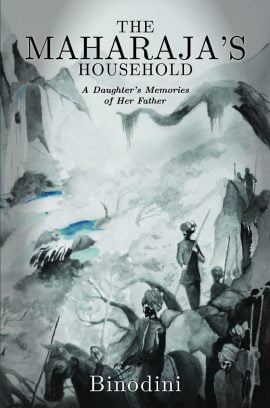
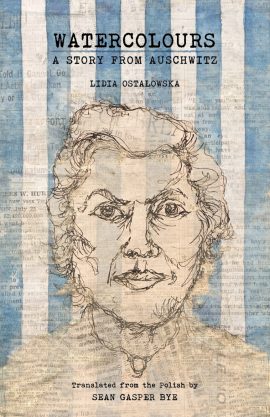
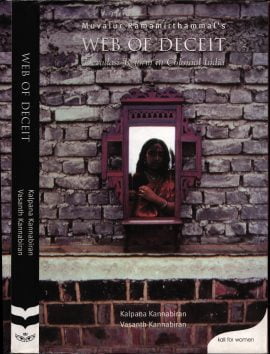
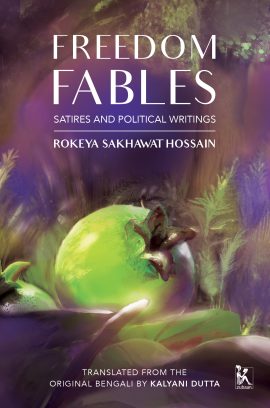
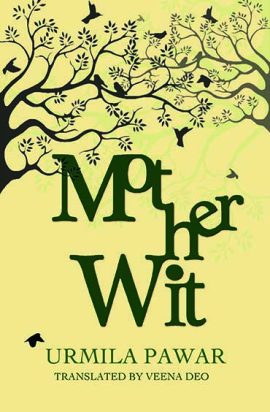
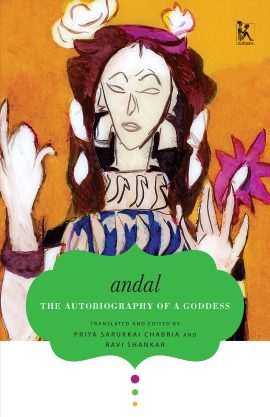

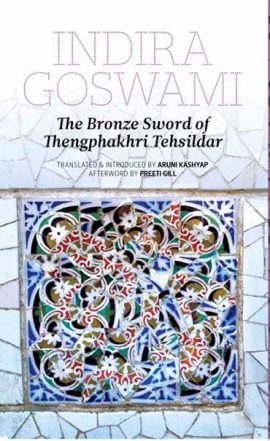
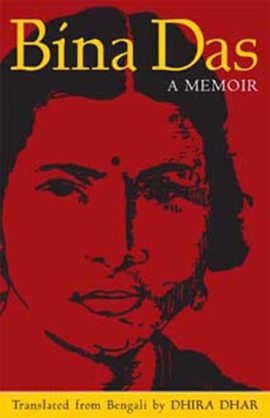

Reviews
There are no reviews yet.